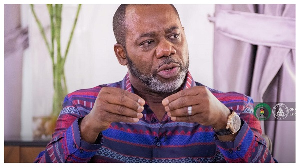Africa is the youngest population made up of willing and able men and women who are desirous and energized to bring their expertise to bear but, they face systemic bottlenecks that affect their ability in the subregion having little or nothing to help contribute their quota to national development.
Political rhetorics and sloganeering have been one of the fundamental challenges blindfolding the electorates into choosing who is better and well placed to lead the continent into a viable place opened to business with the rest of the world.
Wages and earnings of a person of high educational qualifications are also one of the factors leading to the illegal exportation of competent, viable, and well-placed people in academia, engineering, and critical thinkers needed for the development of the continent leaving to Europe, Asia, and other places.
Ghana is not an exception to the growing youthful, able, and agile population of the continent. Narrowing the discussion to Ghana about the why, how, and what is needed to address the catastrophic issues culminating in our underdevelopment.
Ghana is going to the polls next year and synonymous with every political season is political sloganeering, they emanate from every part of the political divide.
After every election, electorates mostly complain about unfulfilled political promises and the underperformance of the social contracts political parties sign with the people of Ghana or the electorates.
Why the blame game after every election?
It is both sides of the coin that must be blamed and the sides of the coin are the political parties that are insensitive to the plight of the people, lacking the capacity, ability, and expertise to assemble people of high moral standards and repute to the management of the country, the electorates must equally be blamed for not subjecting political party manifesto and promises to thorough scrutiny but concentrate their energies to the little benefits they get in the heat of the elections.
The economic boondoggle and quagmire we find ourselves in as a result of the;
Low productivity
High exchange rate
High import bill
Increasing unemployment
Poor industrial policies
Ghana needs to improve upon the five key points highlighted above for accelerated economic recovery, growth, and transformation.
Ghana’s economy must strive to improve or increase productivity through the optimization of resources, creating a better working environment, and increasing wages for the desired output.
Another key challenge confronting productivity in this country is maintenance culture and poor supervision in the areas of work designated.
Any economy that does not get the desired output from its inputs will experience cascading shortages which will hinder supply and also create a gap. We can enjoy economies of scale if the production capacities and equipment are efficient in the working environment to meet demand and create a market for exports.
The high exchange rate has been the major factor causing increases in prices of goods and services as a result of being an import-dependent economy.
Ghana changes more Cedis into Dollars to import products are services that we can produce thereby putting pressure on our currency.
Ghana's import bill is hovering around 10 billion dollars, a catastrophe that must be quelled immediately to bring some sort of respite to our economy. The exchange rate volatilities we are experiencing is as a result of poor leadership and management of our resources.
There are goods and services we have comparative advantage over why not create an environment to mitigate such occurrences?
The most exasperating piece of these all is the importation of hundreds of millions of dollars of cassava, maize, tomato, onion, sugar, rice, and chicken into a country with arable lands capable of producing all these products.
A bad currency has a direct effect on inflation which affects economic activities being carried out effectively and efficiently.
All advanced economies are advanced because they were intentional about their Industrial Revolution. We must shift away from taxation to production, it is a fact that no country has taxed its way to prosperity if the citizens are fatigued about taxation which will lead to economic stagnation.
Until there is a shift away from consumption to production to exportation, we can’t experience sustained economic growth and prosperity.
Unemployment is a ticking time bomb waiting to explode in our faces. As it is prescribed in the various religious manuscripts “the devil finds work for the idle hand” so shall we not gloss over the Arab spring, the civil insurrection in Burkina, military interventions in other parts of the subregion, Mali, etc
Ghana's productive labor force is wasting away because we have not been intentional about a development plan needed to address the challenges confronting our youth.
Youth unemployment is a national security concern and leaders must find a way to address this to avoid any future disturbances.
From time immemorial we have been told the private sector is the engine of growth but without fueling the engine through creating an enabling environment how can the engine kick start?
Our youth have lost interest in this country the reason why all the embassies are filled with Ghanaians seeking visas and leaving our shorts by day, we have not been able to harness our resources towards the empowerment and development of our youth to play a critical role in our national development that’s absolute social exclusivity.
Going forward, Ghana needs leaders who can help build the economy to withstand shocks and any policy must critically prioritize the manufacturing sector cos it is the panacea to our economic transformation in the future.
As we await the blueprint and details of the 24-hour HOURS ECONOMY, let’s quell the poverty of thoughts, and pessimism and welcome policies and directions aimed at addressing the myriad of challenges affecting all of us from across the board.
We must subject every policy to thorough analysis and review to help shape it to address the problems confronting all of us.
Ghanaians are discerning now more than ever and would not buy into political slogans hook lines and sinkers aimed at swaying the electorates.
Let’s hasten slowly in our quest to demonize policies that we have no in-depth understanding of.
Opinions of Monday, 4 December 2023
Columnist: Robert Dambo



















